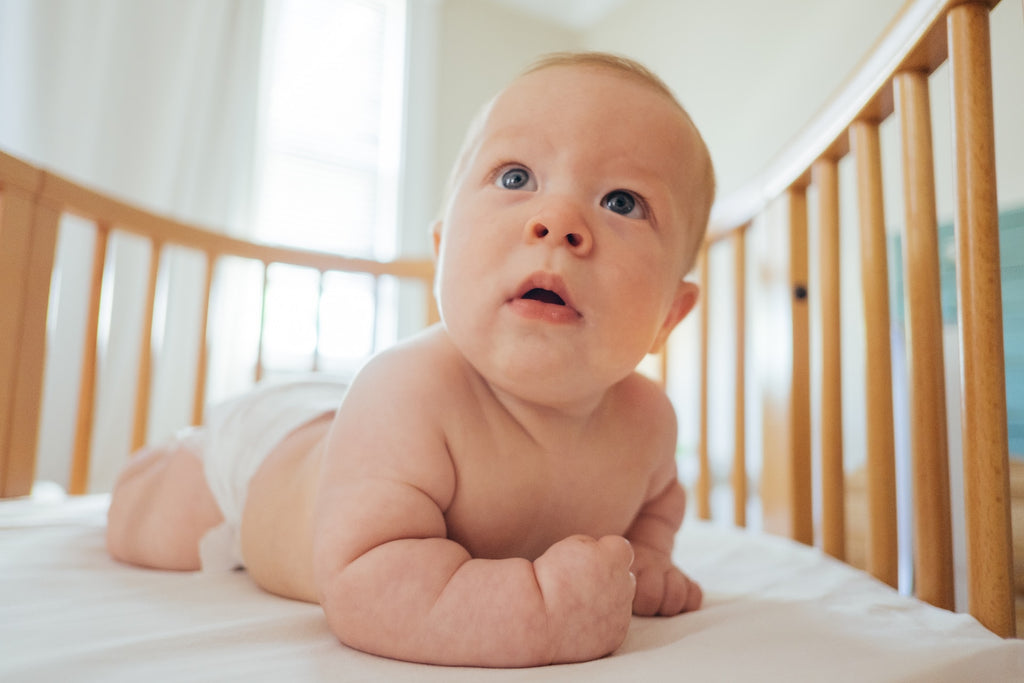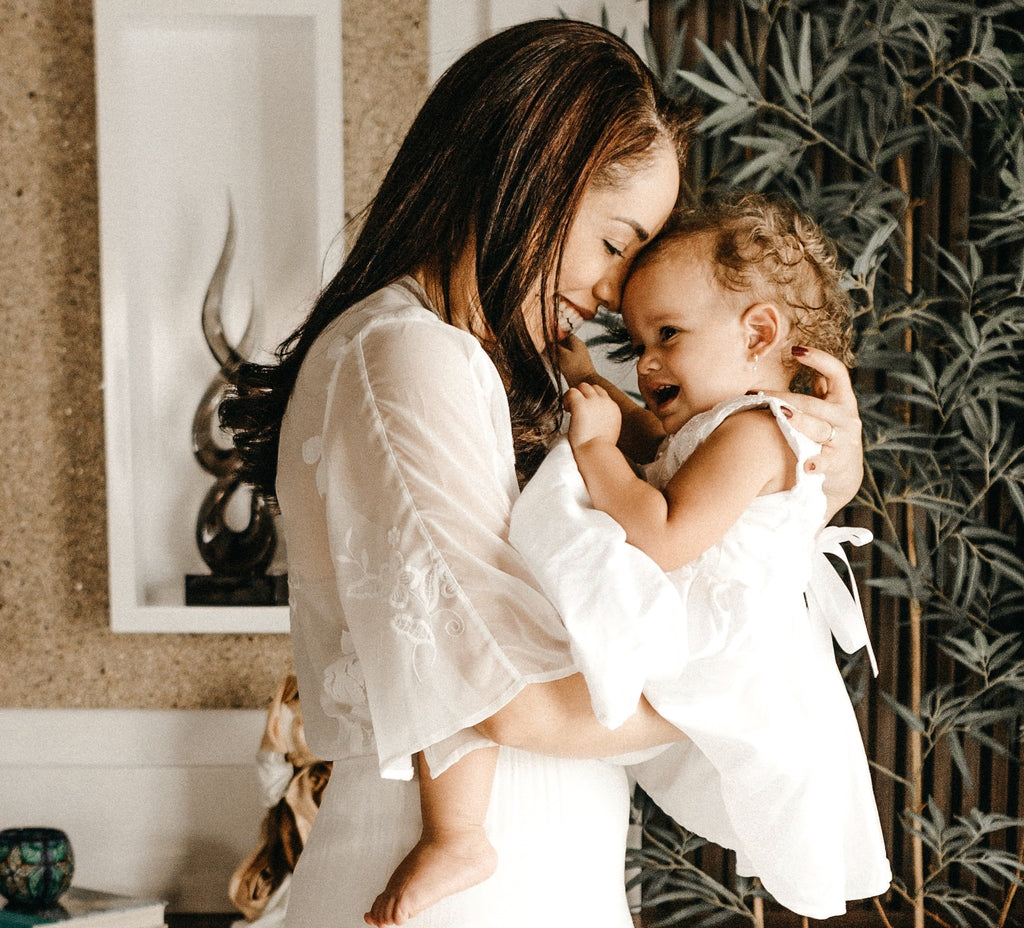With every bundle of joy comes many, many bundles of stuff. Diapers, clothes, bedding, toys, cribs — not exactly a masterclass in minimalism. So, if you’re a new parent who’s been committed to living sustainably until now, it’s a daunting prospect to provide the best baby care possible while also limiting your environmental impact. But wait — you don’t have to throw out the baby (figuratively) with the bathwater. Instead, it may be easier than you think to embrace green parenting with a pro-planet approach that will also teach your child important values. Simply follow these sustainable hacks for green-minded parents who want to be eco-friendly with a baby on board.

Choose sustainable, organic baby clothes
From organic cotton onesies to handmade wool bonnets, choose the best materials for your baby. Seeking organic cotton, linen, and natural wool provides your baby with clean materials free of the harsh chemicals found in synthetic alternatives. Organic cotton and linen are gentle on a baby’s sensitive skin, so it should be a top priority when shopping for baby clothes. Luckily, these garments don’t have to come at a high price tag. Even some big-name brands offer a line of organic cotton onesies and baby clothes.
When it comes time to wash your child’s clothes, continue to keep them free of toxins by laundering them with eco-friendly laundry detergent sheets. SaltyLama’s formula is hypoallergenic and kind to the skin, making it the perfect way to give your baby’s garments a gentle yet effective clean. Plus, the laundry sheets are lightweight and mess-free — something any new parent will appreciate.

Opt for cloth or eco-friendly diapers
Parents go through roughly 3,000 diapers just in their baby’s first year. And with some three million babies born annually in the US alone, that’s a lot of disposable diapers winding up in landfills. Fortunately, many green-minded parents are turning to cloth diapers and other eco-friendly alternatives. Cloth diapers are reusable — they just need to be washed in a sustainable laundry detergent after each use.
The downside to cloth diapers is the upkeep of doing laundry more regularly. However, the environmental payoff is worth it, so long as you are either washing by hand or waiting until you have a full load of laundry and washing in cold water. If cloth diapers are off the table for you, consider eco-friendly brands that use biodegradable or compostable materials to help minimize landfill waste.

Prioritize natural baby care products
The skin of newborns can be extremely sensitive, requiring careful attention and care. If you’re green parenting, opt for natural and chemical-free baby care products when shopping for shampoos, lotions, and diaper creams. Look for brands with organic, plant-based ingredients to protect both your baby’s delicate skin and the environment. Conversely, talcum powder has been named as a possible carcinogenic by the International Agency for Research on Cancer (IARC), which is part of the World Health Organization (WHO). So, if you’re looking for an alternative, consider such natural options as cornstarch or arrowroot powder. You can also make your own products when possible. Use simple ingredients like coconut oil for moisturizing or oatmeal for a soothing bath.

Find eco-friendly nursery essentials and toys
Make your baby’s nursery a peaceful oasis with safe, sustainable products. Furnish the nursery with eco-friendly and non-toxic furniture made from responsibly-sourced materials. Look for cribs, changing tables, and storage solutions crafted from solid wood, woven straw, or other sustainable materials like bamboo or organic cotton. When it comes to baby toys, seek out non-toxic, plastic-free toys. This could be anything from wooden blocks to organic cotton dolls to baby xylophones.
Breastfeed whenever possible
Not every new mother will have the opportunity to breastfeed, but if you’re able to, it’s one of the most sustainable ways to raise a newborn baby. Breastfeeding is greatly beneficial to your baby's health, and it’s the most natural option for providing nutrients to your little one. Plus, it eliminates the need for formula packaging and reduces carbon emissions associated with formula production.
However, if you are supplementing with bottles, choose glass or BPA-free plastic options. New mothers can pump and refrigerate breast milk to be bottle-fed later or you can supplement nutrition with organic baby formula.
Repurpose, upcycle, and donate baby items
When your baby has outgrown their clothing, toys, or crib, practice green parenting by finding alternative uses or new homes for these items. Transform old baby clothes into quilts or cloth wipes. Reuse baby food jars or containers for storing homemade baby food. Sell or donate used cribs and toys your little one no longer needs.
We also recommend borrowing or buying secondhand baby items whenever possible. Not only is this budget-friendly, but it also reduces the consumption of new resources which is a huge part of sustainable living.

Be eco-friendly with your outings
What better way to be eco-friendly with your little one than to enjoy nature walks or cycle rides together? Let your baby breathe in the fresh air during forest walks or peaceful bike outings. Invest in a stroller made from sustainable materials for longer walks and consider adding a baby seat or wagon to your bicycle.
As you can see, embracing eco-friendly practices when caring for a baby not only nurtures a healthy environment for your little one, but also contributes to a more sustainable future for children everywhere. Happy green parenting!

